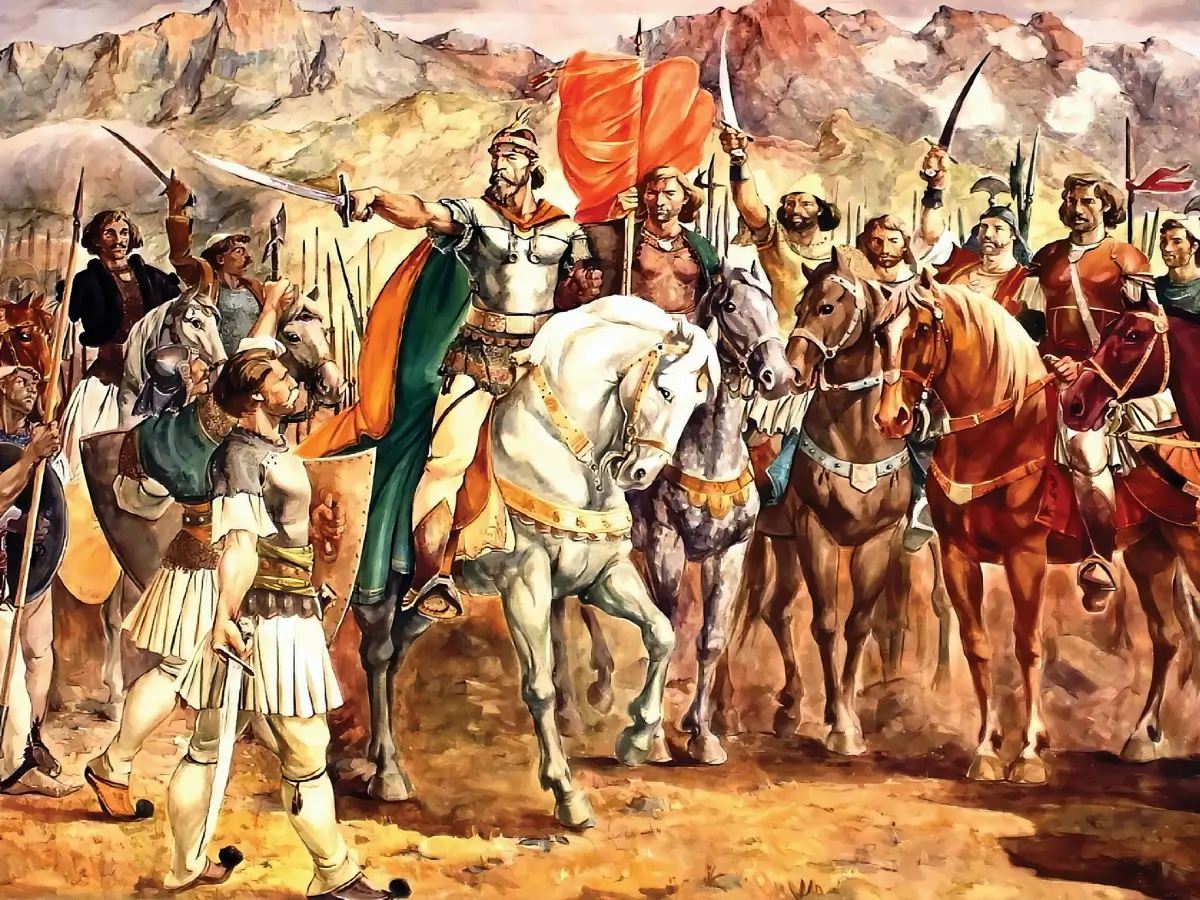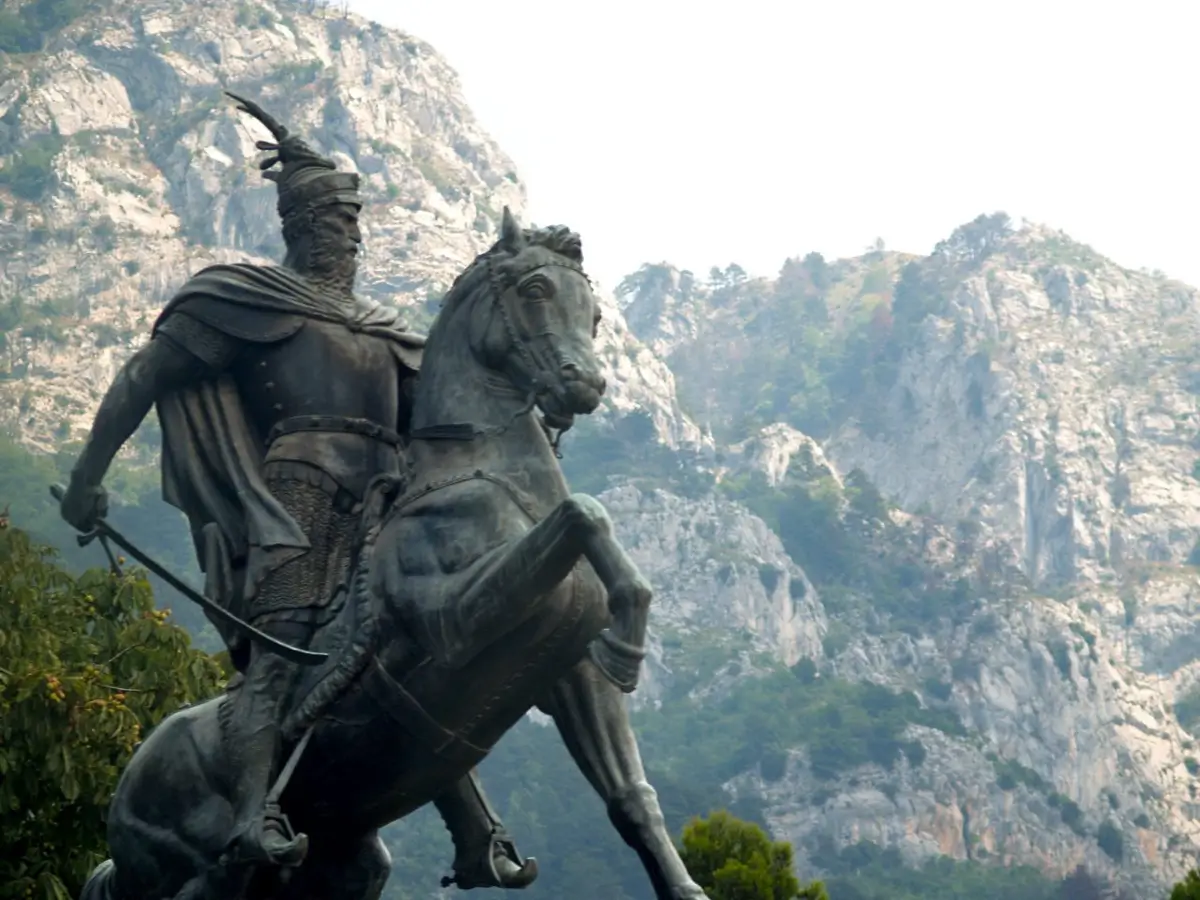Gjergj Kastrioti, better known as Skanderbeg, is one of the most defining figures in Albanian history. Born in 1405 into a noble Albanian family, he became a legendary military leader who led a decades-long resistance against the Ottoman Empire — a fight that shaped Albania’s collective memory and identity.
Skanderbeg’s legacy is more than heroic tales and statues. It represents independence, loyalty, and national pride. His story is taught in every school, carved into public monuments, and echoed in the rhetoric of political leaders and cultural celebrations.

Who was Skanderbeg?
Skanderbeg was born into the Kastrioti family, which ruled a principality in northern Albania. As a boy, he was taken as a hostage by the Ottoman Empire and raised in their military ranks — a common practice at the time to ensure loyalty from local rulers. Trained as an elite soldier and military commander, he eventually rose through the Ottoman ranks and was given the name İskender Bey (Lord Alexander), inspired by Alexander the Great.
In 1443, during a battle in Niš, Skanderbeg deserted the Ottoman army and returned to Albania. He reclaimed his family’s territory, raised a rebellion, and united various Albanian clans under his command. What followed was over two decades of organized resistance against the strongest empire of the era.
Why Skanderbeg became a national symbol
Skanderbeg’s military victories were impressive, especially considering the odds. His forces — often poorly equipped and vastly outnumbered — managed to hold off repeated Ottoman invasions between 1443 and 1468. He defended major strongholds, led guerrilla campaigns, and built alliances with other European powers including the Papacy, Naples, and Venice.
Skanderbeg is celebrated not just for military skill, but for what he symbolized:
-
Unity among Albanian tribes, which were often divided before his leadership
-
Resistance to foreign domination, especially during a time when the Ottoman Empire expanded across the Balkans
-
Christian identity, as he positioned himself as a defender of Christendom in southeastern Europe
-
Strategic diplomacy, securing foreign aid while maintaining local control
-
Enduring legacy, as his story survived centuries of foreign rule and inspired national consciousness later on
His image as a protector and liberator grew even stronger during the centuries of Ottoman occupation that followed his death.
Monuments, memory, and modern identity
After his death in 1468, Skanderbeg’s legend only grew. His image became central to Albanian folklore and national awakening movements in the 19th and 20th centuries. In 1968, during the 500th anniversary of his death, Albania unveiled the famous Skanderbeg statue in Tirana’s main square, a monument that still dominates the capital today.

Other towns — from Krujë to Pristina — also feature museums, statues, and commemorations in his honor. His helmet, with the iconic goat head, remains one of Albania’s most recognizable symbols, appearing on coins, books, and public buildings.
In both Muslim and Christian Albanian communities, Skanderbeg is respected not for religious alignment, but for national unity. His story transcends faith and remains a source of pride across all regions and generations.
Skanderbeg beyond Albania
Skanderbeg’s influence extended beyond Albanian borders. In Italy, his image was honored in southern regions where Arbëreshë Albanians settled. In Austria and Germany, historical writings praised him as a European defender against Ottoman expansion. His story was used in art, literature, and religious writings throughout Europe — making him one of the few Balkan figures to gain widespread Western recognition during the Renaissance.